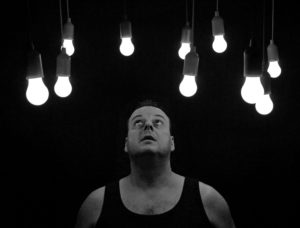There are certain stages people seem to go through when they first begin meditating. Today I’m going to walk through them with you, so buckle your seat belts and prepare for a fun ride.
 Stage 1: Confusion
Stage 1: Confusion
A lot of guides make meditation sound so easy. Sit down somewhere comfortable, close your eyes, and clear your mind, they say.
Sitting and not thinking is going feel really weird and confusing in the beginning, though. This isn’t normally how people behave. Our minds really aren’t used to it, so they need some time to figure out what is happening. While they adjust, you might feel confused or like you’re not meditating the right way.
Don’t worry, though. This is all part of the process.
The desire to move your mind or your body is strongest when you first start out. I know that I still get the urge to open my eyes or wiggle a limb when I’m meditating. In fact, I just wiggled my left foot as I was writing that last line. The mere thought of sitting perfectly still was enough to make me want to move.
This is why I recommend guided meditation for beginners. It is so much easier to stay still and stick with a routine if you have someone telling you how to breathe or which parts of your body you should focus on relaxing at a particular point in the process.
That outside guidance also reduces confusion. You don’t have to worry about where you are or when you’ll be finished if someone else is gently nudging you along.
I’m not going to be recommending any one particular guide here because I haven’t found one that is well-rounded enough to meet my expectations. I jump among a few different products depending on how I’m feeling on a particular day and what I can find online for free.
These things work well for my purposes, but you might want to take a different approach to the question. If one single program meets most or all of your needs, that’s great!
 Stage 2: Boredom
Stage 2: Boredom
This is so boring. Why aren’t I getting anything out of it?
One of the biggest reasons why I had so much trouble getting into the habit of meditating when I first tried it out is that it didn’t seem to be doing anything for me. I’d sit in mental and physical silence for X amount of time without feeling any different at the end of a session than I did beforehand.
Like losing weight, learning a new language, or beginning the long journey home after completing some kind of sacred mission, though, this isn’t the sort of thing that you’ll see quick results for.
Don’t concentrate on the end goal. Focus on your task at hand especially if nothing seems to be changing. This is how it is supposed to be. You will get better at it as you go along.
Yes, it’s going to feel repetitive and mundane some days. This is completely normal and not anything to be concerned about in the least. Boredom isn’t necessarily a bad thing in this case. Your brain will adjust and so will you if you give it some time.
I also think that our technology-obsessed society would really benefit from learning how to handle being bored again in general. I know that I get restless more quickly than I used to because my smartphone is so accessible whenever I need a distraction.
The nice thing about meditation is that it will give you the opportunity to sit with those feelings without trying to find a solution for it. Sometimes boredom can’t and shouldn’t be fixed.
Keep plugging along at it.
 Stage 3: Thoughtlessness
Stage 3: Thoughtlessness
There will eventually come a time when you clear all of the thoughts out of your mind and no new ones will rush in to fill their place.
It’s hard to describe what this kind of experience is like because there are no words or thoughts at all when you’re in the middle of it.
Have you ever woken up just as your final dream of the night was leaving your memory for good?
It feels like a calm version of that.
You’re dimly aware of your own existence and of the fact that something special is happening, but you don’t have any conscious feelings about any of it.
The other metaphor I like to use to describe it is that it is similar to floating around in a little bubble. All of your needs are being taken care of, and there is nothing you need to do, say, or think at the moment.
It is peaceful and invigorating all at once, although neither of those words come to mind when I’m in this state.
Even now this isn’t something that happens to me every single time I meditate. Some days I can’t clear my mind out fully for whatever reason, and that is okay. The nice thing about meditation is that there is no punishment for doing it “incorrectly.” The simple act of trying is enough, and there will always be another day to sit down and see if your mind is more relaxed.
One of the things that made me stick with meditation over the long haul was the fact that there’s no such thing as failure here. It is what it is.
This leads me to the last stage…
 Stage 4: Peace
Stage 4: Peace
Meditation can have some nice benefits for people who practice it regularly.
I recently took a break from meditating while healing from an accident. The (thankfully mild) injury I sustained during it prevented me from moving in certain ways, and the discomfort of it was also enough to cause a distraction when I attempted to quiet down my thoughts for those first few days.
There is peace to be found once you settle into a regular rhythm of meditation, though.
The first time I saw the picture on the right, I giggled.
The second time I wondered about how long the subject might have been meditating before she was captured in this precise moment.
Look at how relaxed the muscles in her face are. A small part of me wonders if someone could have gently placed the hat of leaves on her head while she was meditating without her necessarily noticing or caring what was happening.
I still see the humour in this shot, but it also reminds me of how I feel after some mediation sessions these days. It is so relaxing to open your eyes after 15 minutes of perfect stillness and slowly grow accustomed to the sights and sounds of our world again.
It will be fascinating to see how this develops the longer I practice meditation.
If you haven’t given it a try yet, I highly recommend doing so. This is one of the most positive things I’ve ever done for my mental health. I can’t praise it enough.
